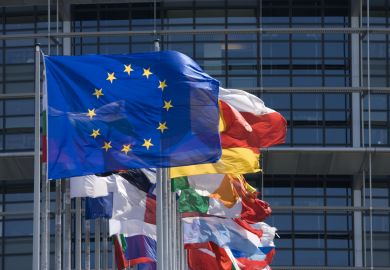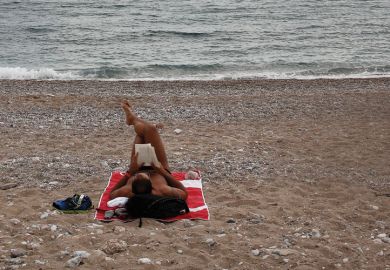It’s been less than two weeks since David Cameron properly fired the starting gun on the European Union referendum, and I’m already getting a dispiriting sense of déjà vu about how tediously difficult it might be to cover this campaign.
To wheel out a few clichéd but accurate terms, the EU vote on 23 June will be momentous, historic and divisive. It should be a reporter’s dream to live through such times.
And yet the debate is so strewn with Rumsfeldian "known unknowns" that journalists can barely even begin to fact-check statements from both sides. This is because we simply don’t know what deal the UK would be able to negotiate post-Brexit.
A sense of this frustration was in the air when a roomful of reporters quizzed assorted science bigwigs in London last Friday. The panel of five, including Sir Paul Nurse, the Nobel prizewinning head of the new Crick Institute, were all adamantly on the side of "remain".
They made familiar arguments: leaving could deprive us of EU scientific funds; lose us our voice in deciding experimental standards we would have to adhere to anyway; and put up a bureaucratic and psychological barrier to top European scientists who want to work in the UK.
Depending on how Brexit negotiations go – and to successfully predict this would require an accurate forecast of European politics for the next two to three years – a non-EU Britain could at least in theory be left with a roughly similar science settlement as it has now, or it could become, as Sir Paul put it, “somewhat lonely in a wet part of Europe”, cast adrift from the continental scientific powerhouse. Or anywhere in between these poles.
Fine, you might say. Although we could get an OK-ish Brexit deal on science, why risk the current settlement we have as a member? Isn’t a vote to leave all downside and no upside? This was Sir Paul’s central argument.
The trouble is that apart from a tiny minority such as the scientists on the panel, science will not be the deciding factor for voters. To make an informed decision, voters need to know how much risk there is to British science so they can weigh this against, for example, the benefits of reduced immigration.
But this risk is almost impossible to quantify, not least because in a Brexit negotiation, Britain might trade away its science chips for a better deal on, say, single market access – or vice versa. We just don’t know yet.
As one hack pointed out during last week’s press conference, all this has wearying parallels with the Scottish independence referendum of 2014.
When I covered that vote, independence held two major threats for Scottish universities. The first was that they would lose access to UK-wide research funds from which Scotland did particularly well; the second was that EU laws would forbid Scotland from charging English students tuition fees if Scottish youngsters went to university for free.
On both of these counts, the SNP argued that, following independence negotiations, the status quo could prevail. I found this pretty implausible myself, and thought most impartial readers would come to a similar view.
Yet this style of debate made the independence referendum not a clean, honest decision about trade-offs between exact costs and benefits, but a hyper-complex muddle of uncertainties and fears across at least half a dozen areas of policy.
Perhaps this is the curse of decision-making in an incredibly tangled world. But it is a particular problem in independence referenda with hazy and protracted negotiations potentially lurking at the end.
None of this is to say that we at Times Higher Education won’t do our best to fact-check during the EU referendum campaign. Known unknowns are far better than unknown unknowns. I’m sure Donald Rumsfeld would agree.
But I fear that the most accurate thing journalists will be able to say during this campaign is: “we’re not quite sure”. That is something readers don’t want to read, and reporters don’t want to write.
Register to continue
Why register?
- Registration is free and only takes a moment
- Once registered, you can read 3 articles a month
- Sign up for our newsletter
Subscribe
Or subscribe for unlimited access to:
- Unlimited access to news, views, insights & reviews
- Digital editions
- Digital access to THE’s university and college rankings analysis
Already registered or a current subscriber?







